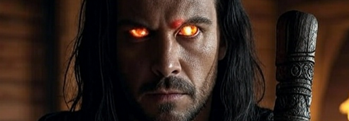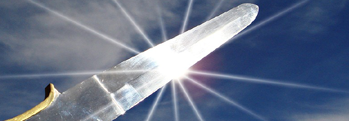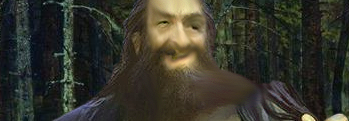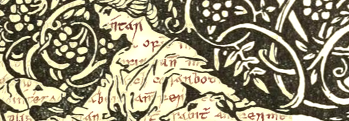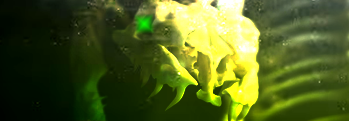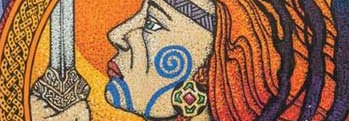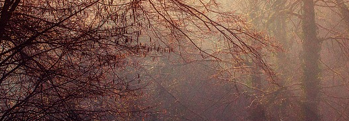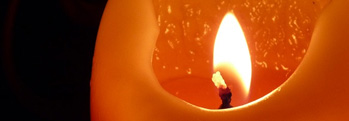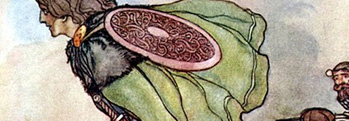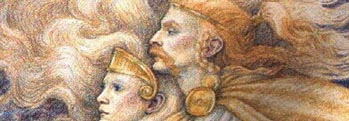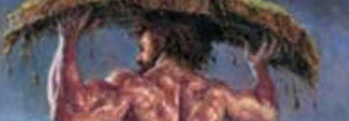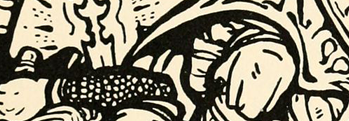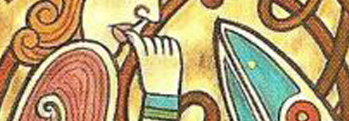The Most Favoured of Fionn
Irish and Celtic myths and legends, Irish folklore and Irish fairy tales from the Fenian Cycle
The secret of Fionn's close relations!
 There are few these days who have not heard of Fionn Mac Cumhaill, hero and defender of Ireland, or at least might recognise his name. But there were no creatures that Fionn loved amongst his three hundred dogs more than his two favourites, Bran and Sceolan, meaning Raven and Survivor, and though it’s a stranger story than most, this is the tale of how they came to be.
There are few these days who have not heard of Fionn Mac Cumhaill, hero and defender of Ireland, or at least might recognise his name. But there were no creatures that Fionn loved amongst his three hundred dogs more than his two favourites, Bran and Sceolan, meaning Raven and Survivor, and though it’s a stranger story than most, this is the tale of how they came to be.
I'll tell you though, however people feel about Fionn, there are some who don't like dogs at all, and just such a person had made his stronghold overlooking Galway bay. His name was Fergus Fionnliath, and he hated dogs so much that he’d go black in the face when he saw one. He’d throw rocks at the dog until it fled, although he had a squint in his eye so he threw crooked.
If he heard a dog barking he’d leap from his seat and throw everything he owned out the window towards the sound. He would give gifts to servants who demonstrated they also didn’t like dogs, and when he heard of a man who had drowned a litter of pups, he tried to marry his daughter.
Fionn was of course the complete opposite, he loved dogs and knew all there was to know about them from the setting of the first little white tooth to the rocking of the last long yellow one, how far to train them without making them servile and suspicious, all they felt and thought, for it is only by understanding that we can truly come to love things.
It happened one time that Fionn’s mother Muirne came to visit him at Tara of the Kings, and with her came her younger sister Tuiren. Muirne wa a woman of surpassing beauty, but even she paled by comparison to Tuiren.
A man could not look at Tuiren without becoming angry or dejected. Her face was fresh as a spring morning, her voice more cheerful than the cuckoo calling from the branch that is highest in the hedge and her form swayed like a reed and flowed like a river, so that each person thought she would surely flow to him.
Men who had wives of their own grew moody and downcast because they could not hope to marry her, while the bachelors of the Fianna cast upon one another grim and sullen sidelong glances, and then they settled on Tuiren like the dawn's first light.
Ut she had no time for them, for her heart was given to a man called Iollan, agreeing when he asked for her hand in marriage. Fionn had no quarrel with the man, but either he didn't know him well or knew him too well, for he made him promise to return Tuiren if she was unhappy, to which condition Iollan agreed.
The chief Lugaid gave her away in the wedding ceremony, which pleased him little, and when she was gone he composed a poem about her which was learned by many sad people.
So the happy couple went back to Iollan’s home, but their happiness couldn’t last for long, since Iollan had a secret he had spoken of to none! Although to be fair to him, he imagined it was gone, never to return.
But it is never wise to think that of one of the fairy folk!
Before he had joined the Fianna he had taken a lover from beneath the Sídhe, a lady by the name of Uct Dealbh meaning the fair breast, of the most ancient blood, and they had been lovers for years. Iollan had often visited with anticipation and eagerness, bearing gifts as tokens of his affection.
Then she would lay her spinning aside, or her embroidery if she was at that, or if she were baking a cake of fine wheaten bread mixed with honey she would leave the cake to bake itself and fly to Iollan.
They walked together in that country which smells of apple-blossom and honey, talking with the trees and singing songs to the clouds above. Deep into one anothers' eyes the gazed long and deep, but then Iollan would return to the land of men, and Uct went back to the land of the ever-young.
Her sister would ask what he had said, and Uct would repeat allt he sweet nothings he had whispered in her ear, but sadly for Uct, nothing is just what they turned out to be, and eventually the news of Iollan's marriage to Tuirean reached Tír na n-Óg.
Then in Uct Dealbh's fair breast arose a dreadful, vengeful fury, jealousy battling with rage for mastery of her spirit, and she took herself away to a dark place where only spiders and the scuttling things that feed on pestilence held court. There she brooded and stewed, planning her revenge.
Like all of the Sidhe, she understood the arts of shape changing and sorcery, so she changed her form to that of Fionn’s female runner, whose face was known in every part of Ireland, and went to visit the faithless Iocann, saluting him in his fortress, although he didn’t expect a runner from Fionn.
“Health and long life, my lord,” she said
“Health and good days,” he replied, “What brings you here, swift foot?”
Uct declared that she had messages for the queen and went into the house to find her. When she did, Uct drew from beneath her cloak her wand of witch-hazel and struck Tuirean on the shoulder! Tuiren's figure trembled and quivered, and it began to whirl inwards and downwards, and she changed into the appearance of a hound.
A sorry sight the beast was, looking about in astonishment and growing horror as it realised its situation, but the worst was yet to come! For Uct snapped a leash around her neck and ran with great swiftness in the west, to the very house of that Fergus who hated dogs with such a dreadful passion.
As they ran Uct cackled her malice and wickedness at the helpless Tuirean, mocking her and taking great pleasure in sharing their destination, for Tuirean knew this man also, and knew her fate was to be one of pain and misery, digging out bones to stave off famine, the lash morning, noon and night, and endless misery.
When they came at last to the Dún of Fergus Fionnlaith, they were refused entrance, for of course the master of the house despised dogs. But Uct refused, saying that it was the will of Fionn that Fergus should have this dog for his own, and none would refuse Fionn in that time.
Fergus wondered at this mightily, since everyone knew he hated dogs, and Fionn knew it too, but even he grudgingly agreed to the gift, and Uct went off back beneath the mounds, well satisfied with her days’ work.
On the following day Fergus called his servant.
“Has that dog stopped shivering yet?” he asked.
“It has not, sir,” said the servant.
“Bring the beast here,” said his lord, “for whoever else is dissatisfied Fionn must be satisfied.”
The dog was brought, and he examined it with a jaundiced and bitter eye.
“It has the shivers indeed,” he said.
“The shivers it has,” said the servant.
“How do you cure the shivers?” Fergus demanded, for he thought that if the animal's legs dropped off Fionn would not be satisfied at all.
“There is a way,” said the servant doubtfully.
“If there is a way, tell it to me,” cried his master angrily
“If you were to take the beast up in your arms and hug it and kiss it, the shivers would stop,” said the man.
“Take that dog up," Fergus commanded, "and hug it and kiss it, and if I find a single shiver left in the beast I'll break your head.”
The man bent to the hound, but it snapped a piece out of his hand, and nearly bit his nose off as well.
“That dog doesn't like me!” said the man.
“Nor do I,” roared Fergus, “get out of my sight!”
The man went away and Fergus was left alone with the hound, but the poor creature was so terrified that it began to tremble ten times worse than before.
“Its legs will drop off,” said Fergus. “Fionn will blame me,” he cried in despair. He loomed over the creature then, waving a finger.
“If you snap at my nose, or if you put as much as the start of a tooth into the tip of a finger!” he growled.
He picked up the dog, but it did not snap, it only trembled. He held it gingerly for a few moments then sighed. He tucked and tightened the animal into his arms, and walked moodily up and down the room. The dog's nose lay along his arm under his chin, and as he gave it dutiful hugs, one hug to every five paces, the dog put out its tongue and licked him timidly under the chin.
“Less of that,” roared Fergus, “stop that forever,” and he grew very red in the face, and stared angrily down along his nose. A soft brown eye looked up at him and the shy tongue touched again on his chin.
Fergus groaned and bent his head, shut his eyes, and brought the dog's jaw against his lips. And at that the dog gave little wriggles in his arms, and little barks, and little licks, so that he could scarcely hold her. He put the hound down at last.
“There is not a single shiver left in her,” he said.
And that was true.
Now he had a friend, and everywhere he went the dog followed after, dancing and bumping up against him. Fergus found to his amazement that not only did the dog like him, but he liked it too! After that he called it his treasure and his little branch, and couldn’t bear to have it out of his sight for a moment. His servants he instructed firmly to protect the animal and any who caused harm to it would answer to him.
He recited a list of calamities which would befall such a miscreant, and these woes began with flaying and ended with dismemberment, and had inside bits of such complicated and ingenious torment that the blood of the men who heard it ran chill in their veins, and the women of the household fainted where they stood.
But of course Fionn was not pleased with how events had unfolded, for in due course it came to him that Tuiren wife of Iollan was gone missing, and had the man dragged before him to explain himself!
Iollan was in a sorry state, red eyed and bedraggled, for he guessed the story and was fearful for what Uct had done to his wife. Still he begged to be given time to find her, and Fionn agreed, warning him that he would have either Tuiren or Iollan’s head!
Straight beneath the mound he went, and on his knees he begged Uct’s forgiveness, but the heart of a fairy is hard and cold with no touch of Christian charity. Still he begged and declared his love and undying fealty to her, swearing never to look at another again, telling her his very life depended upon her love, until finally Uct relented.
“If I save your head from Fionn,” the woman of the Sidhe replied, “then your head will belong to me.”
“That is true,” said Iollan.
“And if your head is mine, the body that goes under it is mine. Do you agree to that?”
“I do,” said Iollan.
And then Uct Dealv went to the house of Fergus Fionnliath, and she broke the enchantment that was on the hound, so that Tuiren's own shape came back to her – but in the matter of two small whelps, to which the hound had given birth, the enchantment could not be broken, so they had to remain as they were.
These two whelps were Bran and Sceolan. They were sent to Fionn, and he loved them forever after, for they were loyal and affectionate, as only dogs can be, and they were as intelligent as human beings. Besides that, they were Fionn's own cousins.
Tuiren was then asked in marriage by Lugaidh who had loved her so long. He had to prove to her that he was not any other woman's sweetheart, and when he proved that they were married, and they lived happily ever after, which is the proper way to live. He wrote a poem of love and a thousand merry people learned it after him.
Poor old Fergus took to his bed for a year in inconsolable sorrow, but Fionn heard of his plight and sent him a special pup, and in a week that young hound became the star of his fortune and the very pulse of his heart, so that he got well again, and he also lived happily ever after.
His fortress was near to the spot marked on the map below!
More Legends from the Fenian Cycle
Mongán mac Fíachnai was a prince of the Gaels, none other than he whose father was Fíachnae mac Báetáin, and it was about the seventh century in Ireland when he ruled over Ulster. Many are the tales told of him and his royal reign, with some even whispering that he was the son of Manannán mac Lir, ancient G ... [more]
The Corleck stone head is believed to be an ancient pagan idol, representing perhaps some ancestor or deity from the pre-Christian era in Ireland. The most striking aspect of the Corleck stone head is its three faces, set in strange, almost unsettling expressions, all the more remarkable for their simplicity of design, lacking ears or detailed feat ... [more]
The Clonoura shield was discovered standing upright in a bog in Clonoura, county Tipperary and represents one of the very few fully intact Iron Age shields that have ever been found. It is marked with many slash and stab scars from knives, swords, spears and other sharp weapons, and dates from 30 to 60 AD, pre-Christian Iron Age Ireland. It is q ... [more]
The days of the heroes of the Fianna have captured the imaginations of many throughout the ages, and one such was the ninth century poet Gofraidh Fionn O’Dalaigh, one of the finest poets in all of Killarney and all of Ireland. For it was his pen and none other that first put quill and ink to parchment and recorded the old story of Reicne F ... [more]
It was a fine day in Ireland many years ago when Fionn and his Fianna took a fancy to go out hunting. Warm was the sun amid the whispering glades of ancient forests, gentle was the breeze and sweet the scent of summer flowers in its bosom. Sweeter yet was the sight of a mighty deer to the eyes of the hunters, and so they gave chase, howling with de ... [more]
It was in the days of Fionn and the Fianna, a very long time ago in Ireland, that the people of Ben Edair decided to hold a festival, a Feis or Aonach, to celebrate the season. All of Fionn’s hosts were gathered, the seven ordinary warbands and the seven extraordinary warbands, and they danced and played music merrily with the people. Then ... [more]
There are few these days who have not heard of Fionn Mac Cumhaill, hero and defender of Ireland, or at least might recognise his name. But there were no creatures that Fionn loved amongst his three hundred dogs more than his two favourites, Bran and Sceolan, meaning Raven and Survivor, and though it’s a stranger story than most, this is the t ... [more]
It is not unusual for stories in the Irish legendarium to have more than one meaning besides that of a literal recounting of historical events, whether by accident or by design. Some tales were meant to be understood in the context of the era and culture of the story teller, while others might instruct in certain arts, and yet others contain myster ... [more]
Those monks who recorded the mythologies and folklore of Ireland which had previously been passed down by word of mouth from bard to druid to bard for countless generations were, by their very nature, devout Christians. As Christians they were dedicated to not only God and His Church, but to the people who bore and nurtured them, and everywhere the ... [more]
One day Fionn Mac Cumhaill, doughty hero of Ireland, and his friends Goll, Cialta and Oscar, as well as others of the Fianna, were resting after the hunt on a certain long hill now known by a different name. Their meal was being made ready, when what should happen only a girl of the kin of the giants came striding up and sat down among them, a grea ... [more]
Something which often appears in the most ancient tales of Ireland is the grisly vision of heads which speak after being separated from their bodies! This was said to be an art of the druids inherited from the necromancy of the Dé Danann, who were themselves said to be able to raise a whole army from the grave to fight again day after day! ... [more]
There once was a young fellow called Conall, and he lived with his parents in the east of the country. They lived a quiet life, catching fish and digging up oysters for meat and lamps, but one dark day the Fomors came and demanded tribute. Having none to give, his father bid the sea demons begone, but instead they made to take himself and his famil ... [more]
Young Fionn Mac Cumhaill was out walking with his dog Bran one fine morning, and he happened to pass into a deep and thick dark wood of the kind that once covered all of Ireland, for the hunting was better there, when what did he come across but a thousand horses hauling timber and men chopping down the trees and preparing the logs. "What a ... [more]
There was a mighty warrior in the west of Eriu, and Cumhal Mac Art was his name. Feared was his axe and he could skewer two men with a single cast of his feathered war-dart, and yet for all that he lived a lonely life, and a life of fear – for it had been foretold that should he ever marry, he would die in battle the very next day! But all ... [more]
It was in the day of Fionn Mac Cumhaill when he was an old man, yet still hale and hearty, that one of his warriors, whose name was Diarmaid son of Donn and grandson of Duibne, had carried off his young bride-to-be, Gráinne daughter of Cormac! The two had fallen in love and Gráinne, for all of Fionn's fame, wanted nothing to do wi ... [more]
One warm summer's day Fionn and his men were out hunting through the darkling forests of Ballachgowan in Munster, chasing deer and boar through the gloomy glades, when they stopped short all of a sudden and came face to face with a startling sight! For what had stepped between them and their prey but a strange, damp giant of a man. Black wer ... [more]
Fionn Mac Cumhaill stood at the door of his hunting lodge with his fists on his hips, his heart sinking as he realised his intentions to hunt for deer this day were lost in the waves of mist and fog that had rolled in from Dublin bay, although at that time it was known by a different name. It had come as far inland as Gleann na Smol, the Glen of th ... [more]
When Fionn Mac Cumhaill became leader of the Fianna, the fiercest and most warlike of those bands of heroes who lived in the wild places, hunting and acting as champions for their kings, and defending Ireland from evil, he decided that he wished to have only the best warriors to follow him. So he sat down and sucked his thumb to taste the wisdom ... [more]
Close by where Limerick city stands today lie the ruins of an ancient and once mighty fortress called Carrigogunnel, which commanded all the lands about with a stern hand. It was known then as a place of ill omen, and it is known today as the same, for it was once the home of an uncanny hag by the name of Gráinne. Amid the surrounding mar ... [more]
A dark horde of fell-handed warriors approached Ireland, sails gathered off the coast like storm clouds, billowing out in the gusts of uncertain wind, while oars bent to the rolling thunder of drums. Fierce indeed was the host of King Colgan, master of Lochlainn, and he came to make war on Cormac Mac Airt, High King of Ireland! As soon as Fionn ... [more]
Diarmuid the Fair, son of Donn or Duibhne of the Tuatha De Danann was one of the Fianna, the great warriors of ancient Ireland who protected the land from dangers near and far. It was said that no woman could resist his gaze, for he'd been granted the blessing of comeliness by the Ghost Queen Morrigan after he helped her out of a spot of bother ... [more]
Fionn Mac Cumhaill and the rest of the Fianna were resting after a great battle, weary and sore with sorrow at the loss of their fellows, when they spied coming along the shores of Loch Lein in County Kerry a beautiful young woman riding a swift horse, so swift indeed that its hooves scarcely seemed to touch the ground! Now although the women of ... [more]
Now it is known by some that the fairies of Ireland weren't much like the fairies we hear about in these latter days, harmless things of mischief and frolic, but were instead respected and often feared, for their anger was quick and their kindness was whimsical. Some would join men in battle, and some would make war on men, others were omens of ... [more]
It was a fine brisk spring morning in Ireland when Fionn Mac Cumhaill decided to take himself for a stroll along the white sandy beaches of the seashore, the better to breathe the air and enjoy the simple pleasures life had to offer. But that morning, life had more to offer and it didn't look pleasant, for it was a giant bearing down on the bea ... [more]
Fionn MacCumhaill was well known as a fair and handsome man, but his most distinguishing feature was his grey hair - and he was not born with it! Fionn was one time out on the green of Almhuin, and he saw what had the appearance of a grey fawn running across the plain. He called and whistled to his hounds then, but neither hound nor man heard hi ... [more]
After his seven years of training with the poet Finegas were done, Fionn Mac Cumhaill took himself from the river Boyne to the great hall of the High King in Tara, Conn of the Hundred Battles, to present himself there as a member of the Fianna, the very best of the best warriors throughout Ireland. Announcing himself, Conn took him into the band an ... [more]
Here is the story of how Fionn MacCumhaill gained the knowledge of the world. And wouldn't it be a great thing to know it all? Still, knowledge and wisdom must be balanced, and this was known to the young man called Fionn, which means fair and bright. He was fleeing from the warriors who had murdered his father when he came upon the hiding plac ... [more]




